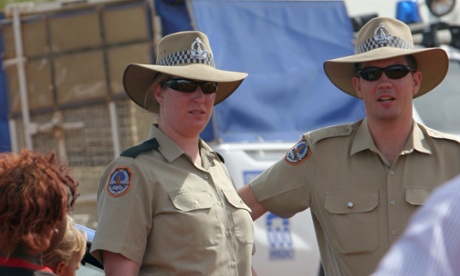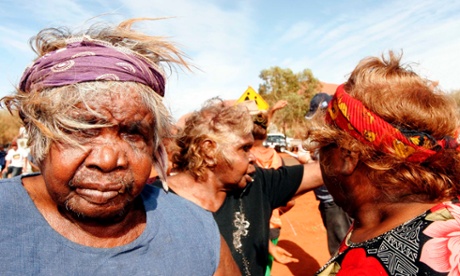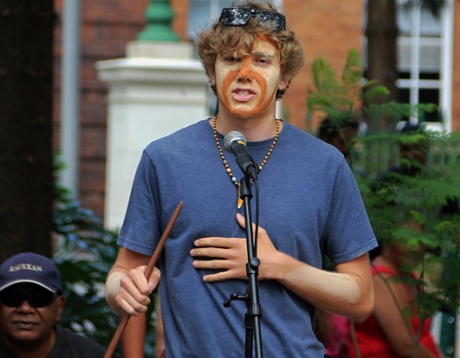Over the next three days PCBYCP brings an extended article by Jonathon Freedland published in The New York Review of Books. His article is a review of three new books on Israel. It went to press on July 11, before the outbreak of fighting in Gaza. Jonathan Freedland’s subsequent post about the crisis in Gaza appears on the NYRblog.
The three books are:
My Promised Land: The Triumph and Tragedy of Israel
by Ari Shavit. Spiegel and Grau, 445 pp., $28.00
Genesis: Truman, American Jews, and the Origins of the Arab/Israeli Conflict
by John B. Judis. Farrar, Straus and Giroux, 432 pp., $30.00
Old Wine, Broken Bottle: Ari Shavit’s Promised Land
by Norman G. Finkelstein. OR Books, 97 pp., $10.00 (paper)
Section 1.
In the toxic environment that characterizes much, if not most, debate on the conflict between Israel and the Palestinians, a special poison is reserved for the liberal Zionist. Such a person, who stands by Israel even as he yearns for it to change, is fated to be hated by both camps: hawkish Zionists despise the liberal for going too far in his criticisms, accusing him of a hand-wringing betrayal of the cause that can only comfort the enemy, while anti-Zionists denounce the liberal for not going far enough, for failing to follow the logic of his position through to its conclusion and for thereby defending the indefensible. The liberal Zionist is branded either a hypocrite or an apologist or both.
The treatment meted out to My Promised Land, a personal history of Israel by Ari Shavit, a columnist for Israel’s left-leaning daily Haaretz, is a case in point. The laptop warriors on both sides donned their familiar armor and set about attacking the book from right and left. “Far from self-criticism, this is simply self-debasement,” wrote the former World Jewish Congress official Isi Leibler in The Jerusalem Post, suggesting that among Shavit’s motives was an ingratiating desire to win “endorsement from the liberal glitterati for whom debasement of the Jewish state has become a key component of their liberal DNA.” Meanwhile, the leftist academic Norman G. Finkelstein has devoted an entire, if short, book to taking down My Promised Land. In Old Wine, Broken Bottle he insists that Shavit’s insights “comprise a hardcore of hypocrisy and stupidity overlaid by a tinsel patina of arrogance and pomposity. He’s a know-nothing know-it-all who, if ever there were a contest for world’s biggest schmuck, would come in second.”
Which is not to say that My Promised Land has not won prominent admirers. It has, receiving praise from Thomas Friedman, Leon Wieseltier, Jeffrey Goldberg, David Remnick, and others. That fact is unlikely to trouble the critics. On the contrary, they will see praise for Shavit from that quarter as a simple act of group solidarity, the lions of liberal Zionism huddling together in a pride.
The squeezed nature of the liberal Zionist’s position is hardly new, but in recent years the predicament has become more pronounced. The decline of the peace movement in Israel, along with the serial failures of the Israeli Labor Party, has suggested a cause in retreat. In the United States, the liberal lions have also come to resemble an endangered species, for reasons that reflect those long-term shifts in Israel. As Peter Beinart explained in a much-discussed essay in these pages in 2010, “The Failure of the American Jewish Establishment,” the leadership of US Jewry has adopted ever more hard-line, Likud-friendly positions on Israel, which leave cold the emerging generation of young American Jews, whose views, on domestic issues at least, tend toward the ultra-liberal. With a Netanyahu-ist AIPAC leadership to their right and a new generation increasingly disengaged from Israel to their left, the liberal Zionists can seem beached on a strip of land that is forever shrinking.
At least one aspect of this used to be very different. In Genesis: Truman, American Jews, and the Origins of the Arab/Israeli Conflict, John B. Judis notes that the founding fathers of American liberal Zionism—chief among them the Supreme Court justice Louis Brandeis—seized on the nascent cause of a Jewish homeland in Palestine partly because it helped reconcile two aspects of their identity: their Jewishness and their liberal values. By supporting Zionism, they were not only supporting a beleaguered, oppressed people fleeing Europe, they were also backing an experiment in collectivist living. Brandeis was particularly impressed, as many would be for decades to come, by the then-embryonic kibbutz movement. As Judis writes of Brandeis in the second decade of the twentieth century, “Jews in Palestine were building the cooperative democracy that he wanted to create in the United States.” There is a sour irony to the notion that the cause of Zion once served as a bridge between Jews and the liberal left. These days it drives them apart.
Section 2.
If the luminaries of liberal Zionism have greeted My Promised Land with enthusiasm, it is hardly a surprise. It articulates their creed perfectly. For what characterizes the liberal Zionist, and what so infuriates opponents on left and right, is the insistence that two things, usually held to be in opposition, can both be true. So while, say, the left denounces settlements and the right highlights Israelis’ fears for their own security, the liberal Zionist wants to do both, often at the same time.
That this is Shavit’s intention is established early. His introduction warns the reader that “duality” will be his watchword, that he will be in the business of both/and rather than either/or:
On the one hand, Israel is the only nation in the West that is occupying another people. On the other hand, Israel is the only nation in the West that is existentially threatened. Both occupation and intimidation make the Israeli condition unique. Intimidation and occupation have become the two pillars of our condition.
One might dispute whether the sense of intimidation is justified, given Israel’s regional and local dominance militarily. But that is beside the point. That Israelis perceive themselves to be endangered, for obvious reasons of history and geography, is entirely clear and in this respect perceptions matter: national security does not exist if a nation feels insecure. Shavit is surely right to say that any account that fails to understand both that fact and the fact of a forty-seven-year occupation cannot hope to “get the Israel story right.”
The book delivers on that promise of duality. It provides, for example, a chapter on the danger posed by Iranian nuclear ambitions, endorsing with a full throat Netanyahu’s talk of the existential threat to Israel. It is an argument that AIPAC could happily reproduce as a campaigning document (and one that, incidentally, has long separated Shavit from many of his more skeptical Haaretz colleagues). Curiously in a book that spans more than a century, it is this section on the current scene that comes across as one of the more dated in My Promised Land. In view of US–Iranian talks on the nuclear issue and, more recently, the tacit cooperation between the two countries over the threat posed by the Sunni organization ISIS in Iraq, such hard-line rhetoric on Iran sounds as lonely and out-of-step coming from Shavit as it does from Netanyahu.
Hawkishness of that kind will duly antagonize dovish readers. But then they will come across passages such as this, prompted by a visit to the West Bank settlement of Ofra:
The settlements have placed Israel’s neck in a noose. They created an untenable demographic, political, moral, and judicial reality. But now Ofra’s illegitimacy taints Israel itself. Like a cancer, it spreads from one organ to another, endangering the entire body. Ofra’s colonialism makes the world perceive Israel as a colonialist entity. But because in the twenty-first century there is no room for a colonialist entity, the West is gradually turning its back on Israel. That’s why enlightened Jews in America and Europe are ashamed of Israel. That’s why Israel is at odds with itself.
Shavit goes further, choosing to include in My Promised Land the account he wrote as a young reservist of his twelve-day stint as a jailer in a Gaza detention camp in 1991, originally published in Haaretz and later in The New York Review. Though the young Shavit writes that he has “always abhorred the analogy,” he quotes a fellow soldier who says “that the place resembles a concentration camp.” He uses the words “Aktion” and “Gestapo.” He says of the camp doctor, “He is no Mengele,” which of course invites a comparison to Mengele.
You might think this makes the Finkelstein view—that Shavit is engaged in sophisticated hasbara, propaganda for Israel—tricky to sustain. But critics of liberal Zionism have a ready reply. The Hebrew phrase of choice is yorim u’vochim, literally “shooting and crying,” used to deride the tendency of the Israeli left to lament the horror of killing Arabs or occupying Palestinians in eloquent prose, stirring poetry, and award-winning movies, while the killing and occupation continue. This way, runs the criticism, the Israeli dove gets to win the admiration of the outside world, Jew and non-Jew alike, for the beauty and sensitivity of his conscience even as the behavior of his country, and the army whose uniform he continues to wear, does not change. In this view, the liberal Zionist is more disreputable than his hard-line nationalist cousin because, unlike the latter, he insists on having his cake and eating it.
That charge can, and has been, leveled at Shavit. One could say that his chapter on Gaza meets the standard definition of “shooting and crying.” But that would be too flippant a response to the larger story My Promised Land is telling, a story in which the book itself may even come to play a part.
Tomorrow Part 2.




